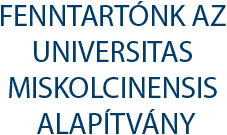SOCIOLOGICAL KNOWLEDGE AND THE PUBLIC GOOD
The common good is primarily a moral and political concept, dating back to ancient philosophy. Various social sciences think about the possibilities of its existence and extension in diverse ways. Sociology examines the public good and community goods primarily in terms of social consultation and action, and their individual and structural effects at micro and macro levels. While the question of the common good is tacitly present in area-specific sociological research on a wide variety of subjects, with the exception of critical theories it rarely becomes explicitly addressed. However, in transitional times like the present one, it seems worthwhile to change this and to collectively reflect on the issue of the common good in connection with various social phenomena.
The crisis of liberal democracies, the devaluation of previously seemingly consensual values (such as social equality) or their infringement without consequences, and the transformations of political culture (passivity, radicalization, populism) all invite us to examine the transformation of community thinking with regards to the public good. Experts in social and community work draw attention to the restructuring of the common good, pointing out that while the state is reducing its social capacities, its role is increasingly being taken over by civilians and self-organizing groups. The reinterpretation of the common good is influenced by a number of ideologies, organizational and community practices, from social movements to religious groups to the public. Understanding the global and local dynamics of such processes also constitutes an important task for sociology.
The aim of the conference is to focus on these social processes and understand them through quantitative surveys and qualitative case studies, and to reflect on the theoretical and methodological tools with which sociology can respond to these challenges.
All sociologists, social researchers and PhD students dealing with the above topic are welcome to attend the conference. Hungarian Sociological Association (MSZT) membership is not a condition for applying to present at the conference (but will affect the participation fee). The language of the conference is primarily Hungarian, but we also welcome lectures, sections and panel discussions held in English.
You can apply for the conference with section plans, plans for semi-plenary panel discussions, and individual presentations. (There will be 3 short, interrelated lectures in the semi-plenary panel, followed by a moderated discussion). The application is done in two rounds. First, we expect section plans and panel discussion plans, which will be reviewed by April 10, 2022. The call for individual abstracts) will be sent out in April and remain open through May, after publication of the final section schedule.
We are planning to hold the conference in person!
Important dates
- Submission of section and panel plans: March 15, 2022
- Decision on sections and panels: April 10, 2022
- Call for submission of individual presentations: April 20, 2022
- Deadline for abstract submission: May 31, 2022
- Decision on individual abstracts: June 30, 2022
- Final conference program published: August 31, 2022
1. Invitation to sections and panel discussions:
The section plan should include the title and topic of the section (250-500 words without references), the language of the section, and the name of the chair and organizer. Plans not meeting the format requirements will be rejected.
The semi-plenary panel discussion plan should include the title and topic of the panel (250-500 words without references), the language of the panel, the name of the panel organizer, the names of the three speakers, the titles of their presentations, and the name of the moderator. Plans not meeting the format requirements will be rejected.
We especially encourage young researchers, doctoral programmes, and members of large research projects to submit draft panel discussions!
Section and panel plans will be assessed by the board members of MSZT. Aspects of assessment: fit to the conference topic; elaboration of theoretical and/or methodological background; relevance.
Please submit session plans here and panel plans here.
If you have any questions, please contact Noémi Loncsák on behalf of MSZT: loncsaknoémi@gmail.com
The organizers:
Hungarian Sociological Association and the Institute of Applied Social Sciences of the Faculty of Arts, University of Miskolc


